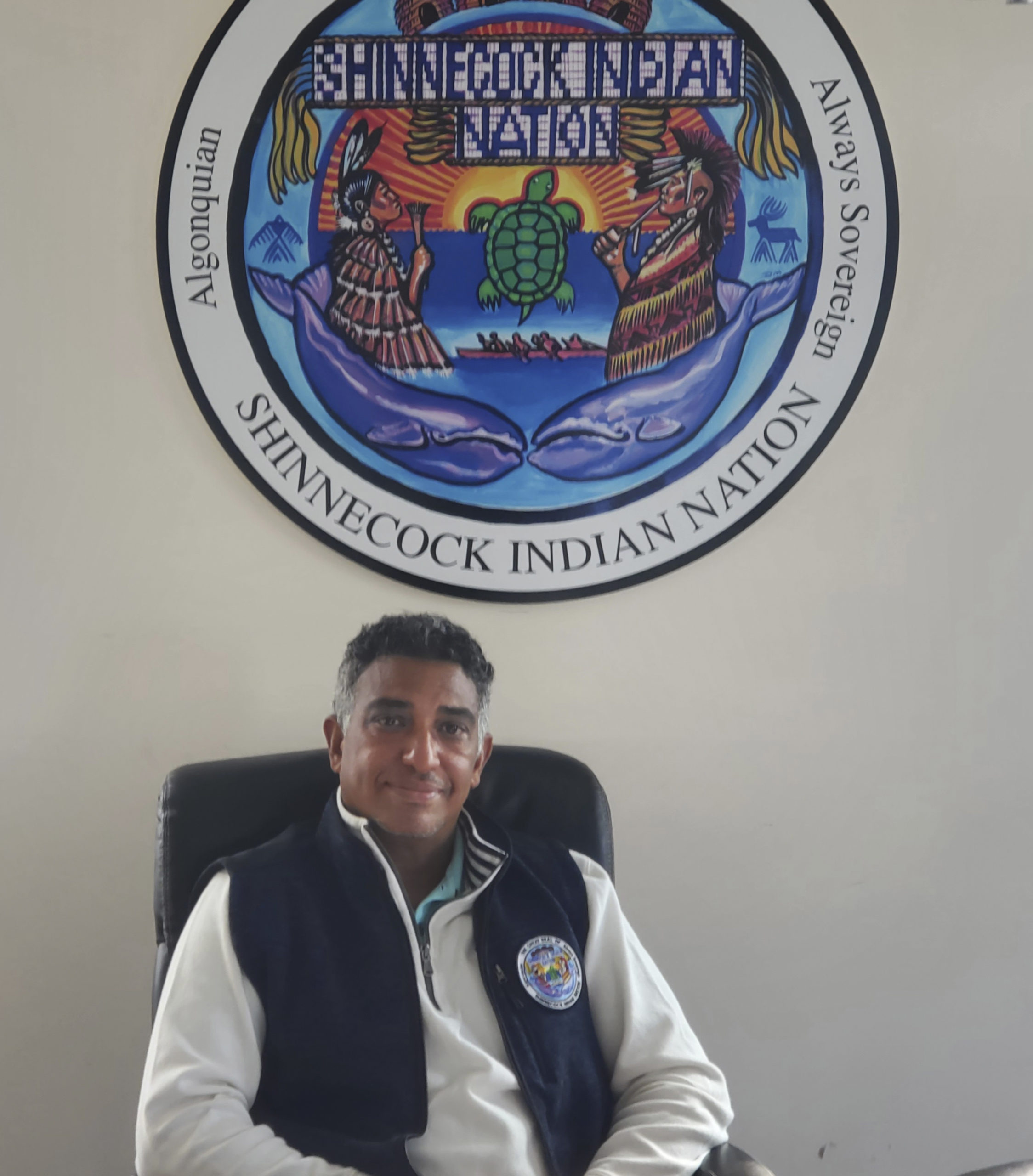
The Shinnecock Nation earlier this month began a process with New York State that tribal leaders hope will land the tribe a seat at the negotiating table for one of three downstate licenses that the state expects to award in the near future for Las Vegas-style casinos with high-stakes gambling.
In the meantime, though, the tribe will continue to press ahead with plans unveiled in February to construct, on its territory just outside Southampton Village, what is called a Class II casino, which would have a bingo parlor, 1,000 video-lottery terminals and 30 Texas Hold ’em poker tables.
On Tuesday, Shinnecock Tribal Chairman Bryan Polite and Vice Chairman Randy King declined to provide specifics of the report that was submitted to the state, citing their desire to allow Governor Kathy Hochul’s staff time to review the submission. They said the tribe responded to a series of questions from the state that basically asked it to outline its case for being considered for one of the three licenses, or a full-scale gaming compact.
King said the governor’s request for information had its roots in the decision of former Governor Andrew Cuomo to pursue the issuance of licenses for state casinos more than a decade ago. Despite that policy, the tribe had been regularly ignored by the Cuomo administration, both men said, citing, as an example, the state’s decision to grant a gaming license to Jake’s 58 Hotel and Casino in Islandia.
Both King and Polite said they were hopeful the governor’s decision to move forward with the process marked a possible thawing in relations between the tribe and Albany.
“All politics is local,” King said, adding that “the tribe has been historically shut out of negotiating a gaming contract” by the state.
Polite laid the problem squarely at the feet of Cuomo. “He was aggressive toward Indian territory even when he was AG,” Polite said, referring to the former governor’s previous role as state attorney general. “He never operated in good faith.”
Of the new governor, Polite said “she seems focused on getting a lot of these things across the finish line that took Cuomo forever to get done.”
King said the state was seeking information from both parties that are interested in pursuing gaming facilities and those that would be affected by the state’s decision of where to place them. The tribe is considered an interested party because it obviously wants to develop a high-stakes casino. It is considered an affected party because as a sovereign nation it has a vested interest in protecting its territory from encroachment by other groups that may want to pursue gambling operations on Long Island, he added.
King said now is the time for local politicians who have said they supported the tribe’s effort to provide for its people to weigh in. They should be asking, he said, “How do we address the Shinnecock? How do we move the needle?”
Just because it is seeking to negotiate a deal with the state doesn’t mean that the tribe will not press forward with plans to build a 76,000-square-foot casino on their home territory. Because it is federally recognized, the tribe does not need the permission of New York State — or Southampton Town, for that matter — to move forward with plans for the Class II facility on its own land. It does, however, require federal approval.
The U.S. National Indian Gaming Commission has already approved the Shinnecock’s tribal gaming ordinance, a framework of rules overseeing a casino operation, but it is still reviewing an environmental impact statement.
When it announced plans to build a casino on its territory earlier this year, the tribe projected groundbreaking would take place sometime in 2021 with a 2022 completion date, but Polite said COVID and other factors had led to delays. “I’m getting out of the prediction game,” he said. “The wheels of the federal government turn slowly.”